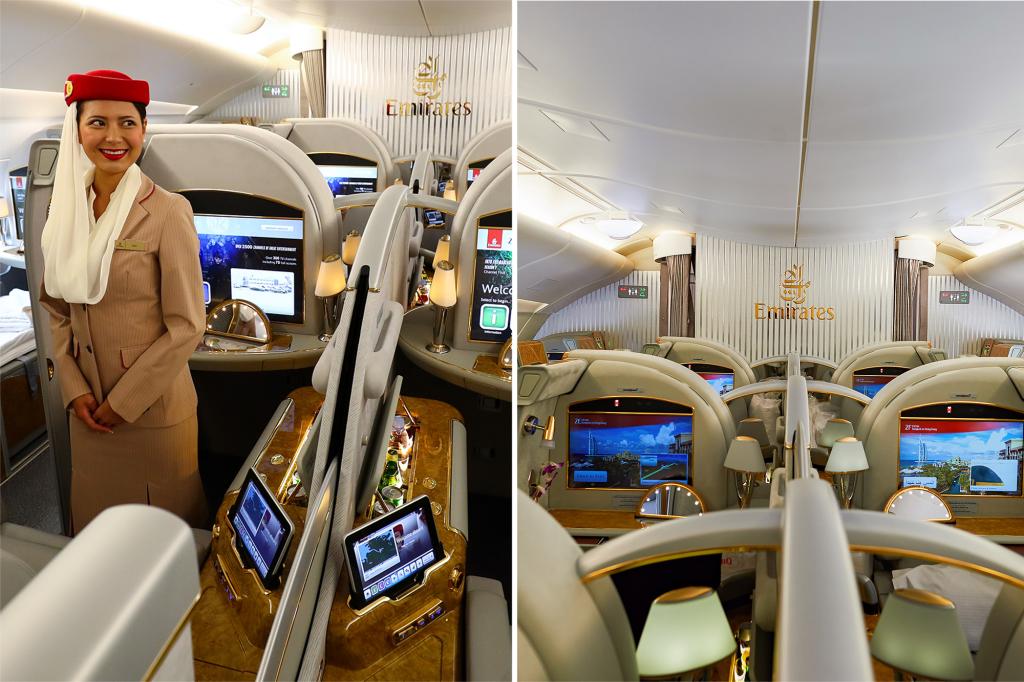Emirates’ New First Class Policy: A Contentious Change for Families
Emirates Restricts Children from First Class Miles Redemptions
Emirates Airlines has recently implemented a significant change to its First Class cabin policy that has sparked considerable debate among travelers, particularly parents with young children. As of August 15, 2025, passengers cannot use Skywards Miles—whether for a full award ticket or an upgrade—to book First Class seats for children aged eight and under. Importantly, this restriction applies only to miles redemptions; families can still purchase First Class tickets with cash for their young children. Emirates appears to be the only major carrier implementing such a specific age-based restriction, and exclusively for miles-based bookings. This selective application has led many to question the airline’s true motivations, with critics suggesting that if the policy were genuinely about enhancing the cabin experience, it would apply to all First Class bookings regardless of payment method. The inconsistency has prompted speculation that the decision is driven more by financial considerations than by a commitment to passenger comfort.
The Divide in Public Opinion
The announcement has ignited a passionate discourse among travelers about whether children belong in premium cabins at all. Some frequent First Class passengers have expressed strong support for the policy, arguing that they pay substantial sums for a peaceful, luxurious experience that can be disrupted by noisy young children. One commenter bluntly stated, “I do not want to have my first class experience ruined by the noise of a small child. I paid money for a quiet, lovely experience.” Others have gone further, suggesting that all airlines should adopt similar restrictions across their premium cabins. However, this viewpoint has faced fierce opposition from parents and other travelers who believe such policies are discriminatory. One particularly incensed parent responded to critics by saying, “Maybe it’s time you get your own private jet before complaining about sharing PUBLIC transport with the PUBLIC. Believe it or not, children count.” Another parent pointedly warned, “Some of you might want to stop your celebratory dance. I can promise you those of us who can afford to fly our kids in business class aren’t just using miles to book our tickets. My toddler will see you on your next flight.”
Parents’ Perspectives and Challenges
The debate has also highlighted the challenges parents face when traveling with young children. Many parents have expressed that flying with children is already stressful without the added burden of passenger hostility. One mother shared her wish for “family-only” flights, explaining, “People can be so awful toward families, as you can see in this comment section. I promise you, the last thing I want is for my child to be crying, loud, or bothering anyone on a plane. It’s actually incredibly stressful for us, too.” This sentiment reveals an important aspect often overlooked in these discussions: parents are typically hyper-aware of their children’s behavior in public spaces and are doing their best to manage difficult situations. The stress of keeping children calm during a flight weighs heavily on parents, who often feel judged and unwelcome even before any disruption occurs. The Emirates policy change adds another layer of complexity for families who have accumulated miles specifically for the purpose of enhancing their travel experience together.
Industry Trends Toward Age-Segregated Travel
Emirates’ new policy reflects a broader trend in the airline industry toward creating age-segregated spaces on aircraft. Several carriers have already introduced adults-only sections to cater to passengers seeking quieter travel environments. Turkish-Dutch carrier Corendon Airlines has established an “Only Adult” zone on its Airbus A350 jets for passengers aged 16 and up, particularly on its lengthy 10-hour route between Amsterdam and Curaçao. Similarly, Scoot offers a “ScootinSilence” cabin on its Boeing 787 aircraft exclusively for travelers aged 12 and above, featuring enhanced comfort with generous legroom and adjustable headrests. AirAsia X has implemented a “Quiet Zone” for guests aged 10 and older on selected flights operated by Airbus A330 aircraft. These zones are marketed as providing “a more serene flying experience with minimal noise.” Japan Airlines took a different approach in 2019 by introducing a “baby map” booking system that displays where infants are seated, allowing passengers to choose their seats accordingly.
The Deeper Questions About Public Transportation and Inclusion
The heated reactions to Emirates’ policy reveal deeper questions about the nature of air travel as a form of public transportation and the balance between individual preferences and inclusive access. While airlines operate as businesses that can set their own policies, they also provide an essential service that connects people across the globe. The tension between viewing air travel as a luxury experience versus a basic transportation service underpins much of this debate. Premium cabins like First Class represent a significant revenue stream for airlines and are marketed specifically as exclusive, peaceful sanctuaries. However, excluding certain passengers based on age—particularly when applied inconsistently—raises questions about fairness and discrimination. The policy has forced travelers to confront their values regarding who “deserves” to occupy certain spaces on aircraft and whether the comfort of some passengers should take precedence over the inclusion of others.
Looking Forward: Balancing Luxury and Inclusivity
As the airline industry continues to evolve, carriers like Emirates will need to navigate the delicate balance between catering to premium passengers seeking tranquility and maintaining inclusive policies that accommodate families. The current approach—applying restrictions only to miles redemptions—appears to be a cautious middle ground, though one that has satisfied neither side of the debate completely. Future developments might include more thoughtfully designed family sections with enhanced amenities for children, better soundproofing between cabin sections, or more transparent booking systems that set clear expectations for all passengers. Whatever direction airlines take, the conversation around children in premium cabins reflects broader societal questions about public spaces, privilege, and the responsibilities we have toward fellow travelers of all ages. As one commenter aptly noted, whether Emirates’ policy is fair or not ultimately depends on one’s perspective about what air travel should prioritize: individual comfort or collective accessibility.














